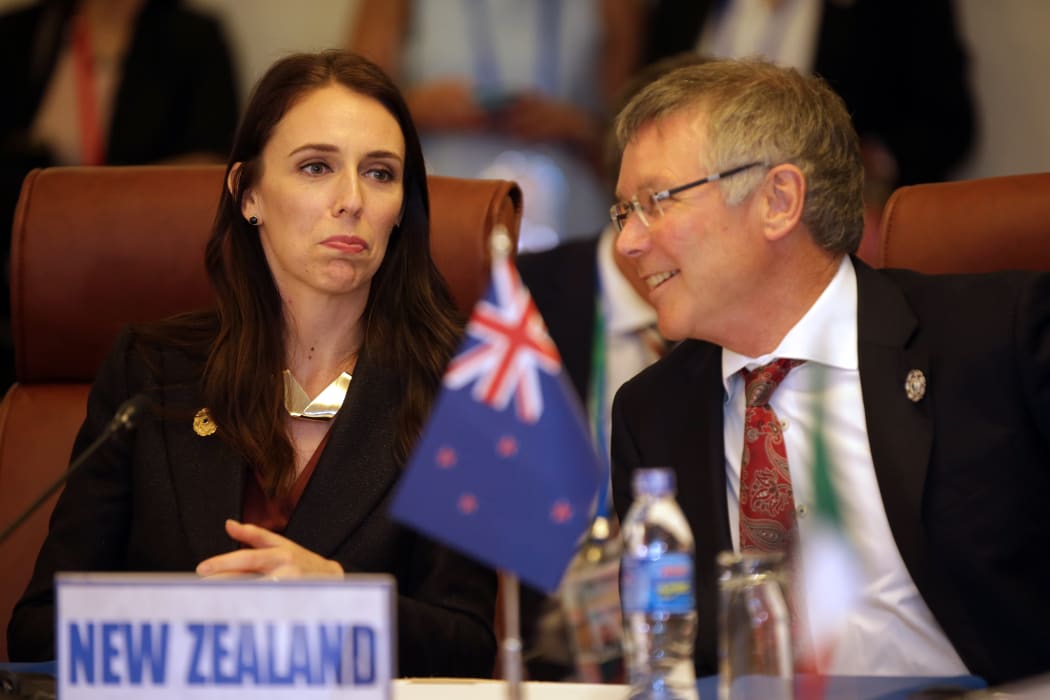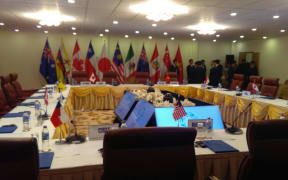The Council of Trade Unions (CTU) is still opposed to the Trans Pacific Partnership, despite the government claiming significant wins at the talks at APEC.

New Zealand Prime Minister Jacinda Ardern with Trade Minister David Parker at APEC. Photo: AFP
Within the past 48 hours Canada was thought to have withdrawn, throwing the deal's future into doubt, but then Canada was back in.
New Zealand Prime Minister Jacinda Ardern said all but four points were now agreed in the 11 nation deal, which has been renamed CPTPP or Comprehensive and Progressive Agreement for the Trans Pacific Partnership.
Veteran trade negotiator Charles Finny said the series of events was unusual.
"The whole last few days has been extremely confusing for everyone - including, it seems, leaders.
"Canada obviously had some last minute difficulties, and for some reason chose to stay away.
"I just find the whole thing bizarre. I've never seen it before in close to 40 years working on these things."
Trade Minister David Parker said New Zealand had wins on all five of the points it had concerns about on the deal.
Those concerns included:
- Retaining the right to stop non-resident foreigners buying homes in New Zealand
- Achieving meaningful gains in market access for farmers
- Upholding the status of the Treaty of Waitangi
- Preserving the government's right to regulate in the public interest
- Preserving the drug-buying model which allows the government agency Pharmac to decide which drugs should be subsidised
Mr Parker said he wanted New Zealanders to understand the agreement before it was finally signed off. He said the Foreign Affairs Select Committee would scrutinise the agreement and Parliament would consider law changes to implement it.
However, CTU secretary Sam Huggard said the agreement was still not good enough on labour laws or transparency.
He said he was keen to talk to the government about negotiating different types of trade deals in the future.
"Certainly the New Zealand Council of Trade Unions has shown a strong interest in its opposition to the TPPA for some years now, and that will continue.
"I guess what we'd like to do though is be part of a conversation with government about what a better agenda for trade could look like for working people."
He said the TPP was structurally biased towards the commercial sector and downplayed issues such as health, safety and human rights.
Meanwhile a staunch opponent to the deal, Auckland University law professor Jane Kelsey, also said the government should commission independent analysis on the effect of the agreement on jobs and income inequality.
She said the government should consult extensively on the agreement.
"In Canada, Prime Minister Trudeau conducted a very extensive consultation throughout Canada and that has underpinned Canada's current caution about endorsing the Trans Pacific Partnership agreement with the 11 countries.
"We need to do the same here."
She said the agreement would still allow foreign corporates to challenge government legislation and contracts, and labour and environment protections were extremely weak.






